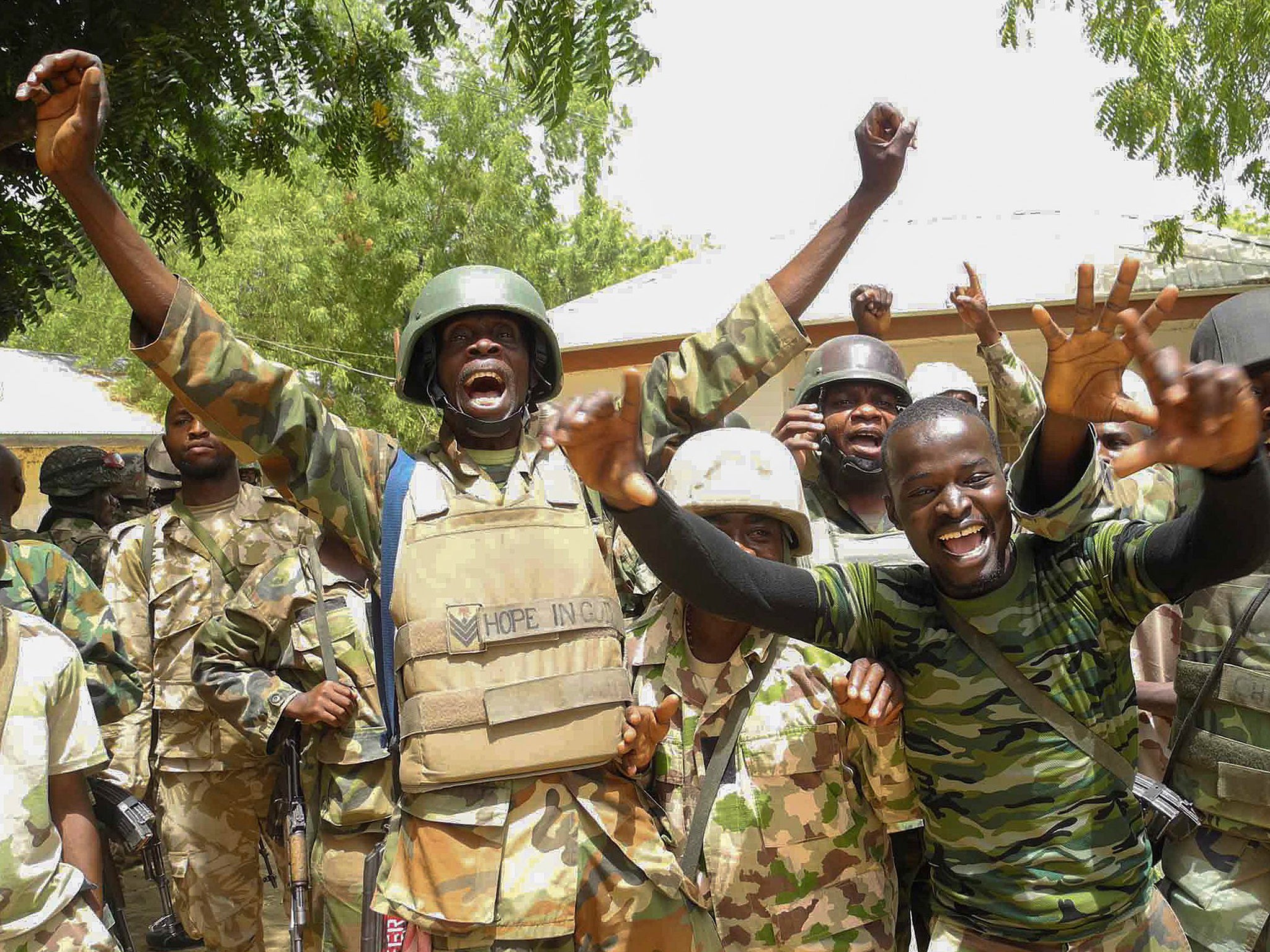Nigeria: Soldiers rejoice on recaptured streets as offensive turns tide on Boko Haram
The soldiers, from Niger, helped liberate the northern town of Damasak

Your support helps us to tell the story
From reproductive rights to climate change to Big Tech, The Independent is on the ground when the story is developing. Whether it's investigating the financials of Elon Musk's pro-Trump PAC or producing our latest documentary, 'The A Word', which shines a light on the American women fighting for reproductive rights, we know how important it is to parse out the facts from the messaging.
At such a critical moment in US history, we need reporters on the ground. Your donation allows us to keep sending journalists to speak to both sides of the story.
The Independent is trusted by Americans across the entire political spectrum. And unlike many other quality news outlets, we choose not to lock Americans out of our reporting and analysis with paywalls. We believe quality journalism should be available to everyone, paid for by those who can afford it.
Your support makes all the difference.“Boko Haram is finished” shouts a soldier, dancing and waving his rifle with his troops.
The soldiers, from Niger, helped liberate the northern Nigerian town of Damasak from Boko Haram.
Arabic graffiti painted on walls and Boko Haram’s black and white flag fluttering on the dome of a mosque are among the few reminders of the Islamists’ four-month reign over the town, which forces from Chad and Niger freed this month.
The town’s recapture was the latest victory in a regional offensive that, analysts suggest, has turned the tide against the six-year insurgency.
“Troop morale is sky-high,” says Niger’s force leader Colonel Toumba Mohamed. “It wasn’t easy to push [the enemy] out, but we did and now they are reduced to almost nothing.”
Last year Nigerian forces scattered as Boko Haram, fighting to establish a “caliphate” in northern Nigeria, seized a swathe of towns in Borno state and bore down on the regional capital, Maiduguri. By the start of this year, it controlled about 20 local government areas, a territory the size of Belgium.
In a dramatic reversal, Nigeria’s army said this week it had pushed the rebels out of all but three districts. The recapture of Baga, scene of one of the jihadists’ worst massacres, in January, was hailed as a major psychological victory.
Yesterday, Boko Haram, which has pledged allegiance to Isis, fought back, attacking the Nigerian border town of Gamboru-Ngala, killing at least 11 people. Resident Mohammed Umara said Cameroonian forces immediately crossed the border when gunfire erupted and drove out the militants.
Outside Damasak, troops from Chad and Niger found a mass grave which, according to a military source, “appears to contain the bodies of Boko Haram’s victims”.
The offensive by Chad, Niger, Cameroon and Nigeria comes as the latter prepares for its elections, delayed six weeks by security fears, on 28 March. President Goodluck Jonathan has been criticised for not doing enough to tackle the insurgency, but yesterday, he said all territories would be retaken “within a month”. He added that the fate of the 219 schoolgirls abducted from Chibok was still unknown, but he believed they were “alive”.
Analysts, though, question how long regional armies can sustain the tempo of the current offensive, without financial and logistical support from the West. The African nations want the UN to set up a trust fund to finance the operations.
And even if Boko Haram is driven from urban areas, analysts warn that it will remain a potent guerrilla force.
Reuters
Join our commenting forum
Join thought-provoking conversations, follow other Independent readers and see their replies
Comments